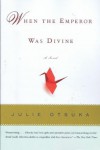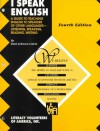Currently reading
Making Sense of the Social World: Methods of Investigation
Practices of Looking: An Introduction to Visual Culture
One Big Table: A Portrait of American Cooking: 600 recipes from the nation's best home cooks, farmers, pit-masters and chefs
When the Emperor Was Divine
A Place on the Corner (Fieldwork Encounters and Discoveries)
I Speak English: A Guide to Teaching English to Speakers of Other Languages-Listening, Speaking, Reading, Writing
Classic Vegetarian Cooking from the Middle East & North Africa
Cultural Sociology: An Introduction
Violence in the City of Women: Police and Batterers in Bahia, Brazil
The Teenage Liberation Handbook: How to Quit School and Get a Real Life and Education
North Carolina Experience
 Okay, this book isn't actually a "snoozefest" so far, but some of the primary sources are so difficult to read (I am not accustomed to the written English of people from the 1600s) that, despite the interesting content, I am having a hard time powering through my assigned readings. I hope that as we move chronologically the readings will become easier to read through.
Okay, this book isn't actually a "snoozefest" so far, but some of the primary sources are so difficult to read (I am not accustomed to the written English of people from the 1600s) that, despite the interesting content, I am having a hard time powering through my assigned readings. I hope that as we move chronologically the readings will become easier to read through. Update: So the book actually has essays by various authors (which I didn't realize right away, because I'm not very observant) introducing each section of primary documents, and those are quite interesting to read because they usually offer a more detailed analysis of whatever event than the broad-overview-style textbook we also read. Some of the essays also offered a different perspective from the other textbook, which was interesting from a historiographical point of view. However, some of the essays were also slightly revisionist (e.g. "the National Guard was called in to keep order and prevent deaths" at a strike, although in actuality several strikers were murdered in the course of events--that's kind of a massive thing to erase), which I didn't appreciate.
The primary source documents, as you move through the book and they become easier to read, are a really fantastic resource to gauge various perspectives on different events (i.e. not just the same old quotes from the wealthy elites that made it into the history books by name).












